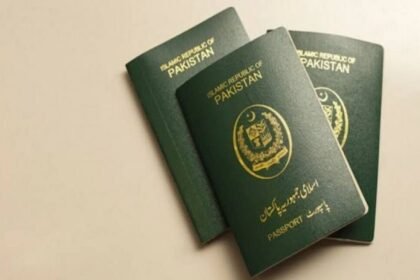In a significant development in the realm of international relations and human rights, fifty-six Pakistani citizens who had been languishing in Sri Lankan jails have finally returned home. Their release has sparked discussions around the treatment of foreign nationals in Sri Lankan prisons, the diplomatic ties between Pakistan and Sri Lanka, and the broader implications for Pakistanis living abroad.
- The Background of Their Detention
- Diplomatic Efforts for Their Release
- The Impact on Families
- Reintegration into Society
- Broader Implications for Pakistani Expatriates
- Human Rights Concerns
- A Turning Point in Pakistan-Sri Lanka Relations
- The Role of Media in Raising Awareness
- Community Support and Solidarity
- The Importance of Advocacy
- Cultural Reconnection and Identity
The Background of Their Detention
The fifty-six Pakistanis were apprehended by Sri Lankan authorities for various offenses, ranging from illegal immigration to drug-related charges. Their detention shed light on the challenges faced by Pakistani expatriates seeking better opportunities abroad. Many of these individuals had left Pakistan in search of work and a better life, only to find themselves in dire circumstances.
The conditions in Sri Lankan jails have long been a subject of concern for human rights organizations. Reports of overcrowding, inadequate medical care, and poor sanitation paint a grim picture of life behind bars. For many of the detained Pakistanis, the experience was not just a legal battle but also a test of resilience in the face of harsh living conditions.
Diplomatic Efforts for Their Release
The return of these Pakistani nationals was made possible through diplomatic efforts between the governments of Pakistan and Sri Lanka. The Pakistani embassy in Colombo played a crucial role in advocating for their release, negotiating with Sri Lankan officials to ensure that the rights of their citizens were upheld.
This incident underscores the importance of diplomatic relations and cooperation in resolving issues related to the treatment of expatriates. The Pakistani government’s intervention reflects its commitment to protecting the rights and welfare of its citizens abroad, a responsibility that extends beyond borders.
The Impact on Families
The release of the fifty-six Pakistanis has brought immense relief to their families, who had been anxiously awaiting their return. For many, the uncertainty of their loved ones’ situation had taken a significant emotional toll. The news of their release was met with tears of joy and celebrations among families and communities back home.
The emotional reunions highlight the human aspect of this situation, reminding us that behind every statistic is a family that has endured hardship. The psychological impact of having a loved one imprisoned in a foreign country can be profound, often leading to feelings of helplessness and despair.
Many of the returned nationals expressed gratitude for the support they received from their families, communities, and the Pakistani government. Their stories of resilience serve as a testament to the strength of familial bonds and the enduring hope that often accompanies such challenging situations.
Reintegration into Society
As these individuals return home, they face the challenges of reintegrating into society. The stigma of having been imprisoned, especially in a foreign land, can pose significant hurdles. Many may struggle to find employment, as potential employers may view their incarceration with suspicion.
The Pakistani government and local organizations must step in to provide support for their reintegration. Job training programs, psychological support, and community outreach initiatives can play a crucial role in helping these individuals rebuild their lives. It is essential to foster an environment of understanding and support, allowing them to overcome the obstacles they face.
Broader Implications for Pakistani Expatriates
The return of the fifty-six Pakistanis also brings to light the broader challenges faced by Pakistani expatriates living abroad. Many Pakistanis seek better opportunities in countries like Sri Lanka, the Middle East, and Europe, often facing legal hurdles and difficult living conditions.
The plight of these individuals serves as a reminder of the importance of establishing clear and humane immigration policies. Governments must work collaboratively to protect the rights of their citizens abroad and ensure that they have access to fair treatment and legal representation.
Human Rights Concerns
Human rights organizations have long been vocal about the conditions faced by foreign nationals in Sri Lankan prisons. The return of the fifty-six Pakistanis has reignited discussions about the need for reforms within the Sri Lankan penal system. Reports of human rights abuses, lack of access to legal representation, and inadequate healthcare continue to raise alarms.
The Pakistani government, alongside international organizations, must advocate for better treatment of detainees and address the systemic issues within the Sri Lankan justice system. Collaborative efforts to improve the conditions of prisons can benefit not only Pakistani nationals but also other foreign nationals facing similar challenges.
A Turning Point in Pakistan-Sri Lanka Relations
The successful negotiation for the release of these individuals marks a significant moment in Pakistan-Sri Lanka relations. Historically, the two nations have maintained friendly diplomatic ties, but incidents like this highlight the need for continued cooperation in addressing the welfare of expatriates.
As Pakistan seeks to strengthen its diplomatic relations with Sri Lanka, the treatment of its citizens abroad will remain a focal point. Both nations must prioritize dialogue and collaboration to ensure that the rights of expatriates are safeguarded.
The Role of Media in Raising Awareness
The media has played a vital role in shedding light on the plight of these individuals and the conditions faced by foreign nationals in Sri Lanka. News coverage of their detention and subsequent release has raised public awareness and prompted discussions about the broader implications for expatriates.
Social media platforms have also served as a tool for advocacy, allowing families and supporters to share their stories and garner attention for their cause. This digital landscape has the power to amplify voices that might otherwise go unheard, fostering a sense of solidarity among those advocating for human rights.
Community Support and Solidarity
The return of the fifty-six Pakistanis has galvanized communities across the nation. Many local organizations and activists have come together to offer support to these individuals and their families, emphasizing the importance of community solidarity in times of crisis.
Community gatherings, fundraisers, and awareness campaigns have emerged in response to this situation, fostering a sense of unity and compassion. Such initiatives not only provide immediate support but also contribute to a larger culture of advocacy for the rights of expatriates.
The Importance of Advocacy
The return of these individuals highlights the need for continued advocacy on behalf of Pakistani citizens living abroad. Ensuring that their rights are protected and that they have access to necessary resources is vital for fostering a sense of security among expatriates.
Advocacy groups and civil society organizations must work collaboratively with the government to address systemic issues and promote awareness about the challenges faced by Pakistani nationals abroad. Building a strong network of support can empower individuals to navigate legal challenges and advocate for their rights.
Cultural Reconnection and Identity
For many of the returning nationals, their experiences abroad may have impacted their sense of identity and cultural connection. Reintegrating into society often involves reconciling their experiences with their cultural roots.
Cultural organizations can play a crucial role in facilitating this reconnection, offering spaces for individuals to share their stories and experiences. By fostering dialogue and understanding, these organizations can help returning nationals navigate the complexities of identity and belonging.
As the fifty-six Pakistanis return home, their journey is far from over. The challenges they face in reintegrating into society are significant, but with the support of their families, communities, and the government, they can begin to rebuild their lives.
This incident serves as a reminder of the importance of advocacy, solidarity, and compassion in addressing the challenges faced by expatriates. By prioritizing the rights and welfare of citizens abroad, Pakistan can foster a sense of security and support for its expatriate community.
The successful return of these individuals marks a pivotal moment in the ongoing dialogue about human rights, diplomacy, and the treatment of Pakistani citizens abroad. As they embark on this new chapter, their stories will resonate within the broader narrative of Pakistan’s commitment to protecting its citizens, regardless of where they may be.
#Pakistan #SriLanka #PrisonersReturn #Diplomacy #ExpatLife #HumanRights #CommunitySupport #CulturalIdentity #Advocacy #Solidarity







